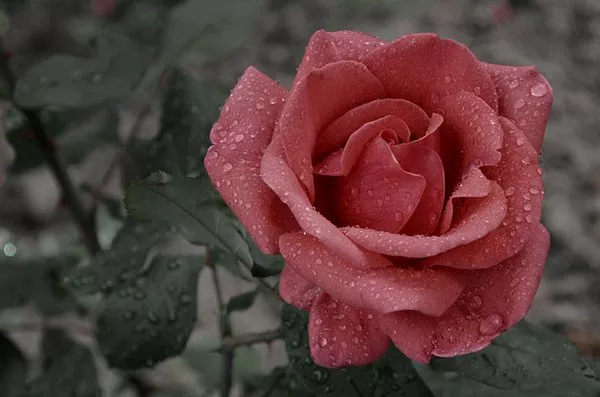In the world of flora, few blossoms captivate the human imagination quite like the rose. Renowned for its exquisite beauty, alluring fragrance, and rich symbolism, the rose has been a source of inspiration for poets, artists, and lovers for centuries. Beyond its aesthetic appeal, the rose carries profound cultural, historical, and emotional significance, making it one of the most revered flowers across different civilizations. Delving into the depths of its symbolism unveils a tapestry of meanings that have endured through time, transcending geographical and cultural boundaries.
Historical and Cultural Significance
The history of the rose traces back thousands of years, with evidence of its cultivation dating as far back as 5000 years ago in China. Throughout antiquity, the rose held a revered status in various civilizations, including ancient Greece, Rome, and Persia. In Greek mythology, the rose was associated with Aphrodite, the goddess of love and beauty, while in Roman mythology, it was linked to Venus, the equivalent deity.
During the Roman Empire, roses adorned public spaces, and extravagant rose gardens were cultivated by emperors. The Romans used roses extensively in ceremonies, festivals, and as decorative motifs in architecture and art. The spread of the Roman Empire facilitated the dissemination of rose cultivation techniques across Europe and beyond, further solidifying its status as a symbol of luxury and opulence.
In Islamic culture, the rose is celebrated as a symbol of love and spiritual devotion. It holds a significant place in Sufi poetry, where it often serves as a metaphor for the divine and the human soul’s longing for union with the divine.
Symbolism of the Rose
The multifaceted symbolism of the rose encompasses a wide range of meanings, each resonating with different aspects of human experience. Some of the key symbolic interpretations of the rose include:
1. Love and Romance: Perhaps the most universally recognized symbolism of the rose is its association with love and romance. The delicate petals and intoxicating fragrance of the rose have long been synonymous with passion, desire, and affection. Red roses, in particular, symbolize deep love and desire, making them a popular choice for romantic gestures such as Valentine’s Day or anniversaries.
2. Beauty and Elegance: The inherent beauty and elegance of the rose have made it a symbol of aesthetic perfection. In art and literature, the rose often represents beauty in its purest form, evoking feelings of admiration and reverence.
3. Spirituality and Mysticism: Across various spiritual traditions, the rose is imbued with mystical significance, representing divine love, enlightenment, and transcendence. In Christian symbolism, the rose is associated with the Virgin Mary and serves as a symbol of purity and divine grace.
4. Secrecy and Confidentiality: The image of a rose with a finger pressed to its lips, known as the “rose of silence,” has been used historically to symbolize secrecy and confidentiality. This symbolism stems from ancient Rome, where roses were placed on banquet room ceilings to remind guests that what was said under the influence of wine should remain confidential.
5. Renewal and Rebirth: With its annual cycle of blooming, withering, and regrowth, the rose symbolizes renewal and the cyclical nature of life. In many cultures, the rose is associated with springtime and the rejuvenation of nature after the dormancy of winter.
6. Balance and Harmony: In the language of flowers, different colored roses convey distinct meanings. For example, white roses symbolize purity and innocence, while yellow roses represent friendship and joy. By combining roses of different colors, one can create elaborate floral arrangements that convey messages of harmony and balance.
Cultivating the Meaning of Roses
While the rose’s symbolism is deeply rooted in history and culture, its meaning is also subject to personal interpretation and context. For many individuals, receiving a bouquet of roses represents more than just a floral gift; it is a gesture imbued with emotion and significance.
In recent years, there has been a resurgence of interest in rose cultivation, driven by a growing appreciation for heirloom varieties and sustainable gardening practices. Gardeners and enthusiasts are rediscovering ancient rose varieties with unique fragrances and forms, adding depth and diversity to their gardens.
Moreover, the rose continues to inspire artists, poets, and designers, serving as a muse for creative expression across various mediums. From paintings and sculptures to fashion and fragrance, the rose remains a timeless symbol of beauty and elegance.
Conclusion
In the vast tapestry of flora, few blossoms evoke the depth of emotion and symbolism embodied by the rose. Across cultures and centuries, the rose has served as a universal symbol of love, beauty, and spirituality, transcending linguistic and geographical boundaries. Whether adorning a bridal bouquet, gracing a painting, or symbolizing divine grace, the rose continues to captivate the human imagination, reminding us of the enduring power of nature’s most exquisite creations. As we cultivate and cherish this timeless flower, we perpetuate its legacy of meaning and significance for generations to come.


